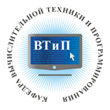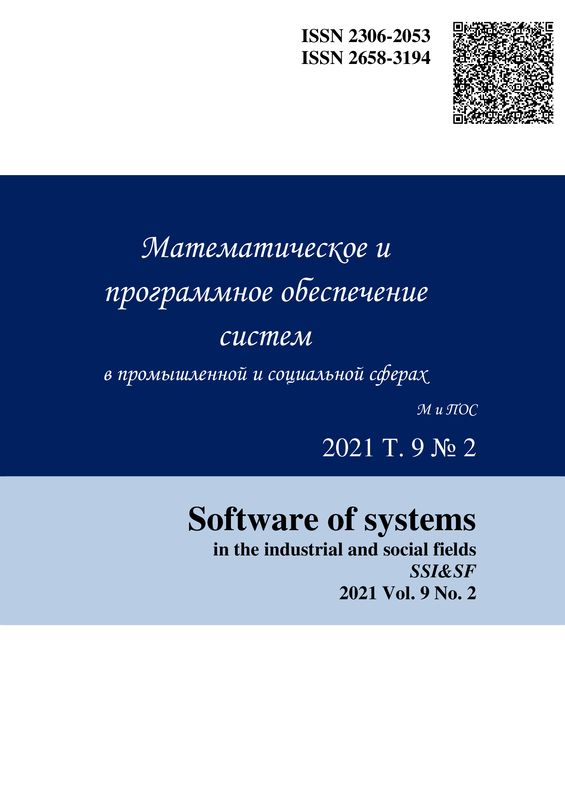Аннотация
The paper deals with the problem of constructing a system of rating indicators to stimulate the work of the teaching staff of a higher educational institution. A lot of directions of the teacher's activity (educational, scientific, international, etc.) has laid the basis for selecting groups of indicators in the system. The social challenge for improving the quality of educational services has determined the relevance of the research in the field of modeling and forecasting the indicators that characterize the work of a higher education teacher. The use of the information hypercube for the structure of the initial data has made it possible to take into account the individual characteristics of each parameter that is part of the mathematical model for describing the rating indicators. The drift of indicators means that the introduction of new indicators, the removal of existing indicators, the relocation of indicators between groups are taken into account. For the first time the authors have introduced a quantitative indicator of the variability of groups, the value of which determines the forecasting strategy in the future period of a teacher's work at the higher educational institution. To predict the total amount of incentives, a comprehensive methodology has been proposed that contains four modules: modeling the values within the existing range in the previous period; modeling the values of a new indicator based on the assumptions entered using the generator of a random number; excluding the range of values of remote indicators; modeling new values on the basis of studying a modern trend of indicators. The presence of a flexible information structure in the form of a hypercube and a complex mathematical model has made it possible to carry out a computational exper-iment for predicting the values of group and individual indicators. In the course of the experiment, the structural stability of the values has been revealed, which has not lead to a great change in the quantitative ratio between the groups of indicators.
Ключевые слова
Management, faculty, rating system, model, forecast.
1. Assessment of a teacher effectiveness in a modern educational institution: monograph / O.A. Grishina, O.V. Saginova, I.I. Skorobogatykh, et.al. / Edited by Doctor of Economic Sciences. O.V. Saginova, Ph.D. J.B. Musatova. – Novosibirsk: Publishing House of the Central News Service, 2015. 114 p.
2. Comparison of scientometric indicators of the publication activity of universities in the Caspian regions of Russia / I.Yu. Brumshtein, A.A. Baganina, R.R. Akhmedova, A.N. Gorbacheva. // Prikaspiysky Journal: management and high technology. 2016. No. 1 (33). P. 79-90.
3. Bedarkar M., Pandita D. A Study on the Drivers of Employee Engagement Impacting Employee Performance // So-cial and Behavioral Sciences. 2014.V. 133.P. 106-115.
4. Il'in A.E., Il'inova O.V. Economic essence and elements of the system of material incentives for labor // Bulletin of the Kursk State Agricultural Academy. 2013. No. 9. P. 2-5.
5. Feoktistova O.A. Results of labor of scientific workers: instruments of state stimulation of quality //. Science of sci-ence. 2014. Iss. 5 (24). P. 1-17.
6. Bocharnikov D.A. Some problems of the salary system of scientific and pedagogical workers related to the teaching staff / Actual problems of Russian law. 2015. No.10(59). P. 120-125.
7. Weihua An. Instrumental variables estimates of peer effects in social networks // Social Science Research. 2015. V. 50. P. 382-394.
8. Santos L.M., Amorim L.D., Santos D.N., Barreto M.L. Measuring the level of social support using latent class analy-sis // Social Science Research. 2015. V. 50. P. 139-146.
9. Emirov N.D., Labutina L.M. Social experiment and promotion of innovative management technologies in the social sphere // Herald of IzhSTU. 2013. No. 3 (59). P. 68-71.
10. Barbakov O.M., Goreva O.M. Social experiment in virtual space as a form of control of innovative technologies in the system of higher education // Proceedings of higher educational institutions. Sociology. Economy. Policy. 2007. No. 4. P. 86-89.
11. Sidorov A.A., Baigunchekova A.T. Social experiment "the price of modern society" / Energy and enthusiasm of young people for resource-efficient technologies. Collection of scientific papers. VI All-Russian Conference. Tomsk: National Research Tomsk Polytechnic University. 2015. P. 447-448.
12. Yamazaki K. Regularity criteria of the three-dimensional MHD system involving one velocity and one vorticity component // Nonlinear Analysis: Theory, Methods & Applications. 2016. V. 135. P. 73-83.
13. Lin Xu, Chao-Fan Xie, Lu-Xiong Xu. The Reliability and Economic Analysis Comparison Between the Parallel System and the Erlang Distribution System // Advances in Intelligent Systems and Computing. 2016. V. 10. P. 35-42.
14. Logunova O.S., Lednov A.V., Korol’ova V.V. The analysis results of the publication activity of the faculty of the Nosov Magnitogorsk State Technical University // Vestnik of Nosov Magnitogorsk State Technical University. 2014. No. 3 (47). P. 78-87.
15. Logunova O.S., Egorova L.G., Korol’ova V.V. Indicators dynamics of the publication activity of the teaching staff of Nosov Magnitogorsk State Technical University // Vestnik of Nosov Magnitogorsk State Technical University. No. 3 (51). P. 101-112.
Managing the teaching staff activity: modeling and forecasting the rating system indicators / O.S. Logunova, V.V. Korol’ova, E.A. Ilina, A.B. Bel’avsky, D.Ya. Arefeva // Математическое и программное обеспечение систем в промышленной и соци-альной сферах. – 2017. – Т.5. – №2. – C. 38-46.





